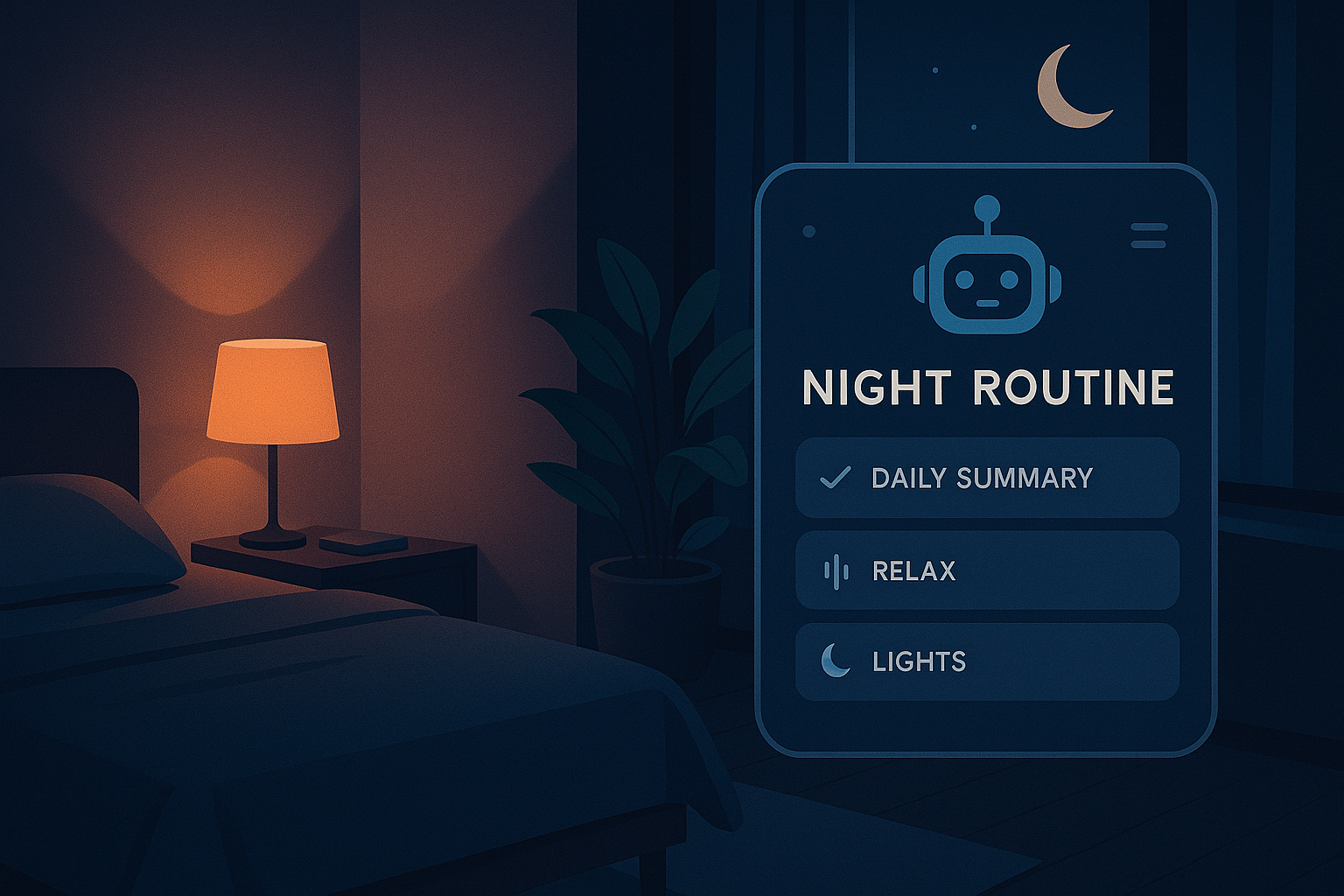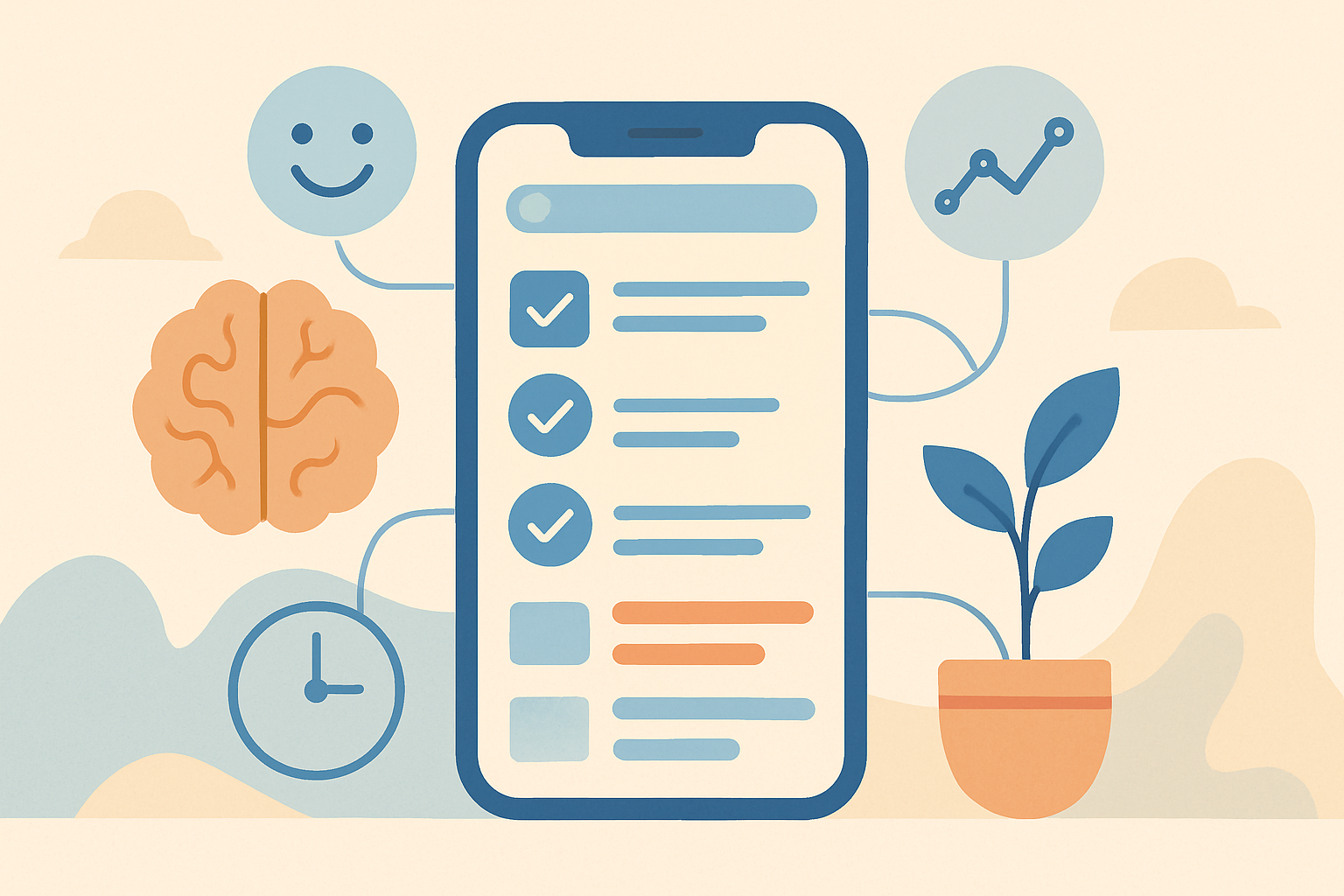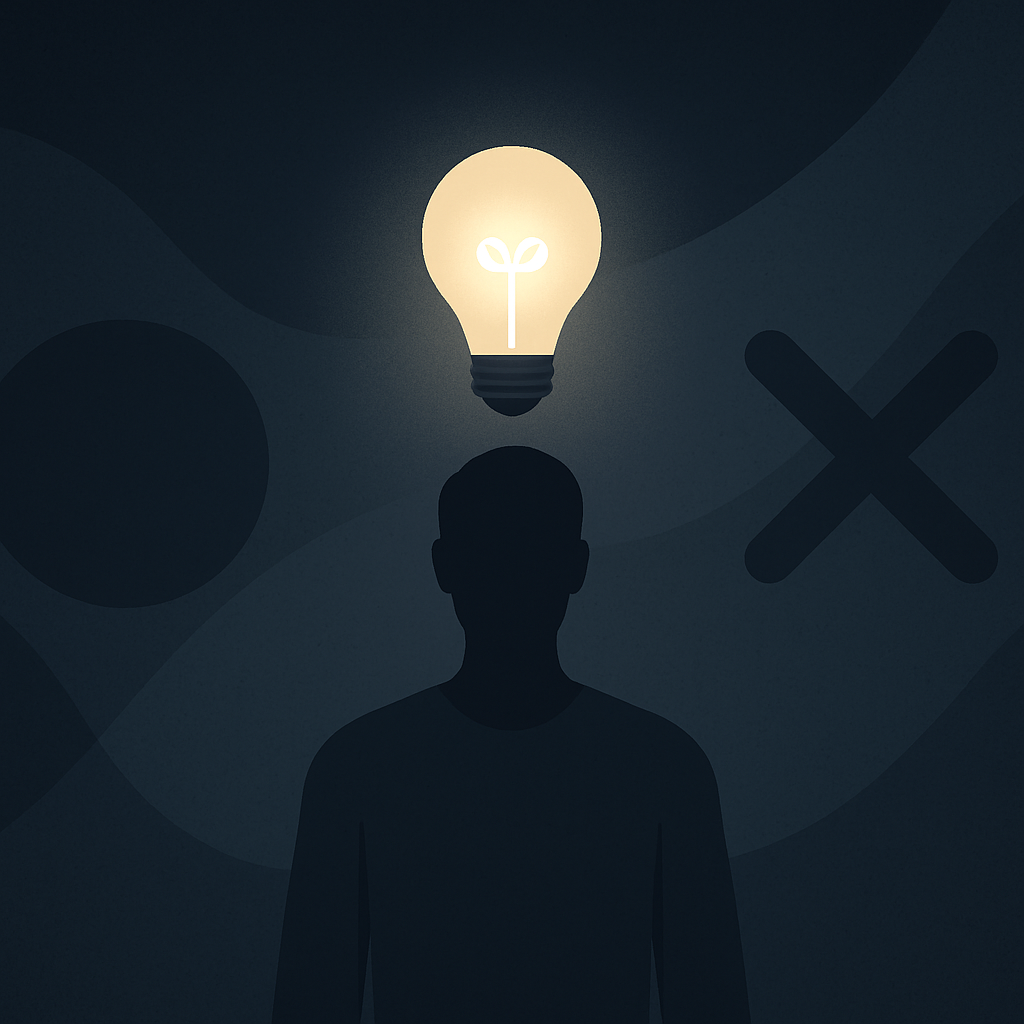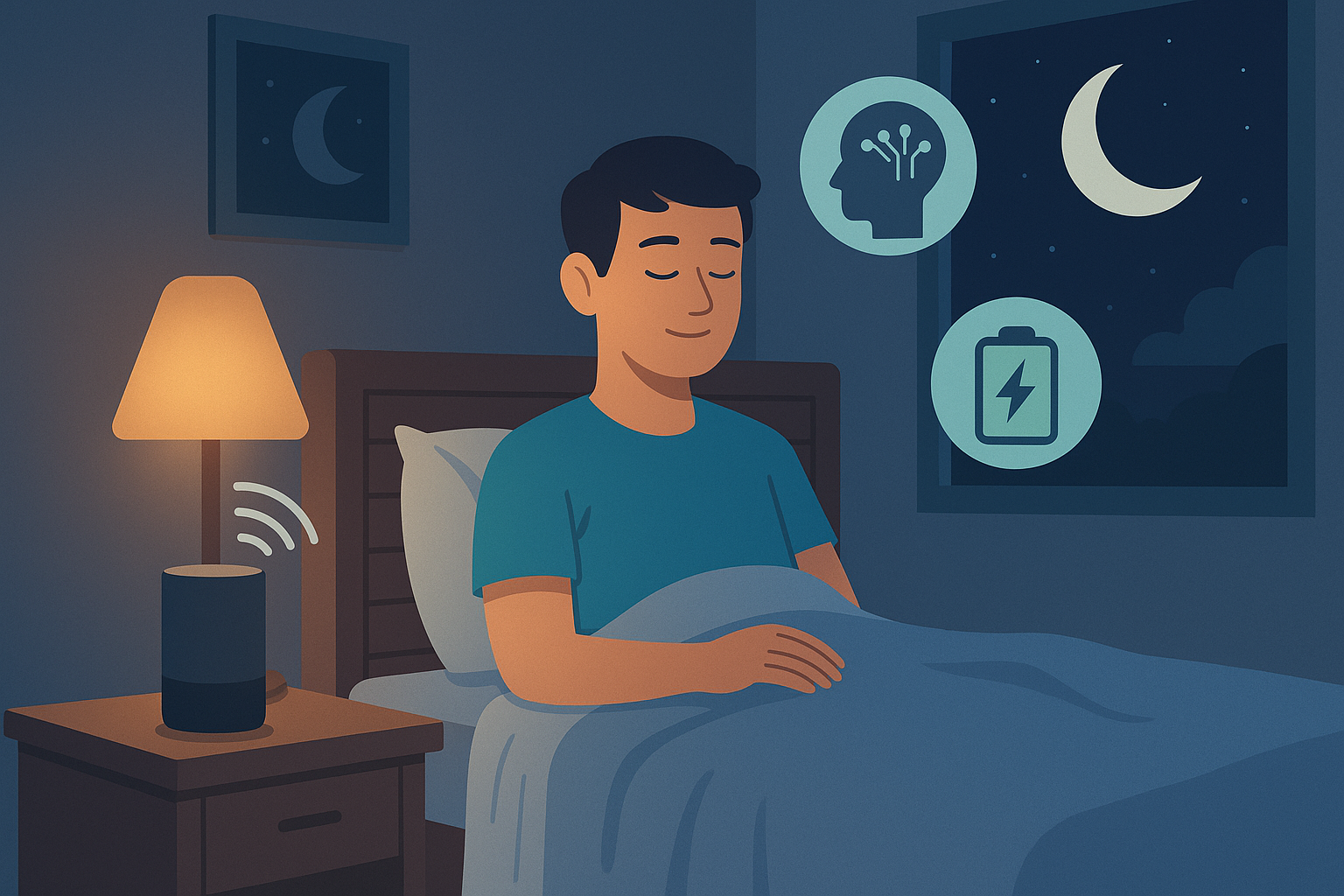The most productive people don’t start their day with discipline — they start it the night before.
A consistent night routine doesn’t just improve sleep; it rewires how your mind and body recover, learn, and perform. AI
Now, with artificial intelligence, the process of winding down has become smarter, calmer, and deeply personalized.
AI doesn’t just tell you when to sleep. It learns how you rest.

Why the Night Routine Matters More Than You Think
Every decision, task, or creative idea depends on one fundamental input — your energy.
Yet most of us treat sleep as the leftover space in our calendar instead of the foundation of our performance.
A proper night routine helps transition your brain from stimulation to recovery. It reduces cognitive load, clears emotional residue, and synchronizes your biological clock.
When AI enters that process, it becomes predictive — capable of adjusting your environment, mood, and schedule based on real data.
Sleep becomes less about time — and more about quality.
How AI Understands Your Sleep and Energy Cycles
Modern AI sleep systems analyze multiple data points: light exposure, heart rate variability, stress levels, and even language patterns from your digital activity.
They create a unique model of you — your rhythms, patterns, and recovery trends.
Example:
Oura Ring or Whoop detects that your recovery score drops whenever you stay on your phone past 11 PM. The system then sends an adaptive reminder 30 minutes earlier, dims smart lights, and pauses notifications.
Over time, AI learns your ideal rhythm and builds your perfect wind-down sequence automatically.
| AI Input | Interpretation | Automated Response |
|---|---|---|
| Screen time increase | Blue light exposure | Activate warm lighting |
| High heart rate | Stress detected | Suggest meditation or breathwork |
| Late productivity spikes | Circadian misalignment | Adjust next day’s schedule |
| Sleep debt | Fatigue risk | Shift morning blocks |
Your night becomes less reactive, more restorative — guided by intelligent signals rather than tired willpower.
The Anatomy of an AI-Enhanced Night Routine
A consistent night routine with AI blends physical cues, digital automation, and self-reflection.
The structure may vary, but the essence is always the same: slow down, reset, and prepare.
Example routine:
- Evening review: ChatGPT or Notion AI summarizes your day, highlighting wins and stress points.
- Transition phase: Smart lights dim gradually, matching your circadian rhythm.
- Recovery focus: A mindfulness app like Mindsera or Calm (AI version) adapts its tone and duration to your stress data.
- Sleep optimization: Devices like Eight Sleep regulate mattress temperature to maintain optimal rest cycles.
By connecting these tools, AI creates an environment where you don’t have to decide to rest — your system leads you there naturally.
The Science of Consistency
The biggest challenge isn’t sleeping well once — it’s doing it every night.
AI excels at consistency because it removes decision fatigue. It automates the ritual until it becomes second nature.
Each evening, the same sequence unfolds: lights dim, music fades, breathing slows, and your system signals the body — “it’s time.”
Neuroscience shows that when cues remain consistent, your brain builds faster associations with rest, reducing time to sleep by up to 40%.
AI doesn’t just track patterns — it builds them.
Example: My Personalized Night System
At 10:15 PM, my AI assistant activates Night Mode.
Reclaim AI moves my remaining tasks to tomorrow.
Notion AI generates a daily reflection report.
Spotify (connected via automation) starts a low-frequency ambient playlist.
Smart lighting transitions from daylight white to amber, while my smartwatch sets an 8-hour recovery goal.
By 10:45, I’ve reviewed, reflected, and released.
I don’t think about rest — I arrive at it.
Table: Traditional vs. AI Night Routines
| Aspect | Traditional Routine | AI-Enhanced Routine |
|---|---|---|
| Timing | Based on willpower | Based on data |
| Environment | Manual setup | Automated cues |
| Consistency | Inconsistent | Predictive and adaptive |
| Awareness | Reactive | Reflective and analytical |
| Recovery | Variable | Optimized nightly |
AI turns an abstract idea — “rest better” — into a measurable process of improvement.
The Emotional Impact of Smart Rest
AI-guided recovery isn’t just physiological. It’s emotional.
By summarizing your day and reframing stress before bed, it reduces mental residue — the unresolved thoughts that disrupt rest.
Journaling with AI before sleep gives perspective, closure, and gratitude — all of which help the brain relax.
The more consistently you offload, the lighter you wake.
In this way, your night routine becomes a daily reset button for your entire nervous system.
How to Start Designing Yours
The key isn’t adopting every gadget — it’s choosing what feels natural.
Begin with one or two AI integrations: a reflection tool like Notion AI, or an automation platform that syncs lighting and music.
Then expand gradually — add sleep tracking, recovery feedback, or journaling prompts.
Over time, these micro-systems form a holistic cycle that closes your day with clarity and begins the next with calm.
Rest becomes a ritual — intelligent, personal, and consistent.
The Future of Sleep and AI
Soon, AI systems will go beyond suggestion. They’ll sense emotional tone, monitor brain activity, and adapt in real time.
Imagine a world where your journal, lights, and environment react to your mood, helping you release tension before it reaches your dreams.
This isn’t far off.
The same intelligence that powers your workflow will soon design your peace.
Conclusion
Consistency isn’t about discipline — it’s about design.
An AI-powered night routine helps you create the conditions for recovery without relying on willpower.
When you let intelligent systems manage your environment, you rediscover something technology rarely gives back: stillness.
Sleep no longer becomes an interruption to productivity.
It becomes part of it.
Further Reading & Related Insights
Internal link:
- Design an AI-Powered Life System — Learn how to integrate AI into every area of your routine for clarity and balance.
External links:
Blog
This section provides an overview of the blog, showcasing a variety of articles, insights, and resources to inform and inspire readers.
-

AI Habit Tracking and the New Rhythm of Modern Self-Improvement
AI Habit Tracking. Progress used to depend on discipline. Now, it depends on data.…
-

AI Decision Making and the New Discipline of Intentional Living
AI Decision Making. Every “yes” has a cost. Every time you agree to something…
-

The Perfect AI Night Routine to Sleep Better and Think Smarter
AI Night Routine. Your morning doesn’t begin when you wake up — it begins…
